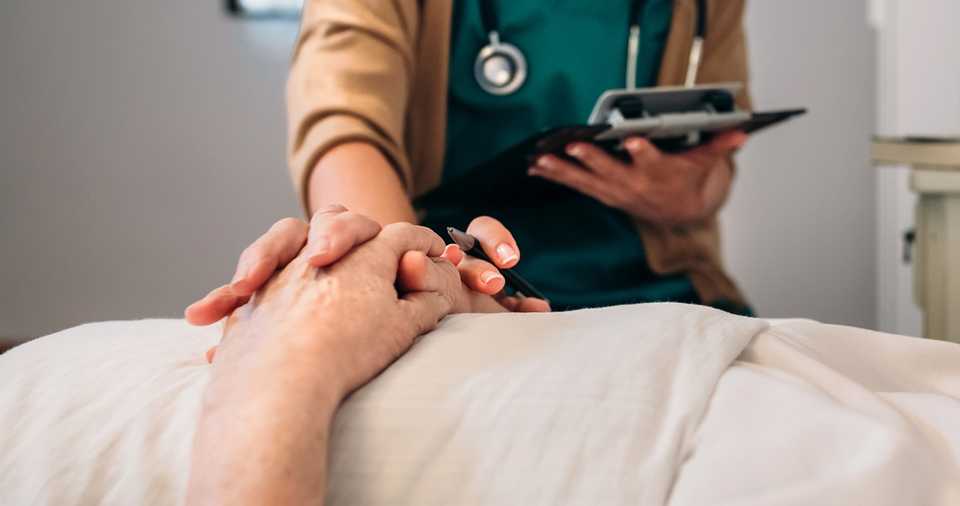Medical assistance in dying is a complex and controversial topic that raises many ethical and legal debates. In Quebec, the practice of medical assistance in dying is strictly regulated by law, specifically by the Act Respecting End-of-Life Care, which came into effect on December 10, 2015.
This law was adopted with the aim of allowing people at the end of life who are undergoing severe suffering to choose to end their suffering in dignity, being assisted by a doctor.

In this article, JuriGo explores in detail the conditions for obtaining medical assistance in dying, the application procedures, and the patient's rights in such a context.
What are the conditions to obtain medical aid in dying?
To access medical aid in dying in Quebec, it is necessary for the patient to meet certain conditions:
- Be a major, in other words, be 18 years old or older;
- Be covered by the Quebec health insurance plan;
- Be capable of making one's own healthcare decisions;
- Be suffering from a serious and incurable disease;
- Be facing a medical situation where his/her abilities are severely impaired and no improvement is foreseeable;
- Be informed of the means available to alleviate his/her suffering;
- Consider these means of relief from his/her suffering intolerable.
In addition to each of these conditions, the patient must be capable of giving his/her consent to medical aid in dying in a free and informed manner at the time of his/her initial decision-making, without any external pressures.
How does the request for medical assistance in dying proceed?
To obtain medical assistance in dying, the patient must make a written request using a form in which they must include the date and their signature. At the time of signing the request, a health or social services professional must accompany the patient. This professional will sign the request as an independent witness, and then deliver it to the patient's treating physician.
It will then be up to the treating physician to evaluate the patient's request to ensure that it meets all the criteria provided by law, that is to say the conditions presented above. The treating physician then obtains the opinion of another independent physician, who must also confirm in writing that the patient is indeed eligible for medical assistance in dying.

It is important to note that the patient's treating physician is not obliged to treat a request for medical assistance in dying. In such a case, they can refuse to treat the request and it will be another doctor who will agree to take care of the request for medical assistance in dying.
The patient's rights in the context of medical assistance in dying
The law provides protective measures for the benefit of patients who choose to use medical assistance in dying. Thus, before administering medical assistance in dying, the doctor must meet certain conditions and ensure that these protective measures are taken:
- The doctor must ensure that the patient has been able to discuss the situation with their loved ones . If the patient requires it, family members can discuss the request for medical aid in dying with the doctor;
- In case of obstacles to communication with the patient, the patient must have access to a reliable means of communication and the doctor can verify that the patient has understood the information that has been conveyed to them;
- The patient has repeated their request for medical aid in dying several times, at different moments during the course of their illness;
- The patient continues to consent clearly, freely, and informedly to receive medical aid in dying, up until the moment they are about to receive it. They must have the opportunity to change their mind and withdraw their request up to the last moment.
These conditions represent the general protective measures that the doctor must implement before administering medical aid in dying. The rest of the measures to be taken will depend on two situations, whether the patient's natural death is reasonably foreseeable or not .

However, there is no specific time period that predicts when natural death is "reasonably foreseeable". Therefore, it is not necessary to know the patient's life expectancy to determine whether their natural death is reasonably foreseeable or not.
The process when the patient's natural death is reasonably foreseeable
If the patient's natural death is reasonably foreseeable and all the conditions and protective measures described above have been checked and respected, the doctor will be able to administer medical aid to die, and this, without any delay to be respected.
The patient's loved ones as well as any other person they would want by their side can be present during their last moments. The doctor must ensure that the patient consents to medical aid to die until the very last moment.
In some cases, a patient may lose their ability to express their express consent during these last moments before receiving medical aid. They can still resort to medical aid to die, as long as they give their consent to receive it on a specific date.
The end-of-life date will then be determined by written agreement and this date must be within a maximum of 90 days after the written agreement. Thus, the patient will not have to give his consent just before receiving medical aid in dying if he has lost his ability to consent.

Attention, however, the doctor will not administer medical aid in dying if the patient begins to refuse or resist it. This refusal does not need to be express, it can be words, sounds or voluntary gestures.
The process when the patient's natural death is not reasonably foreseeable
In other cases, the patient's natural death may not be reasonably foreseeable. If this is the case and the general conditions and protective measures have been respected, the doctor will have some additional obligations:
- The doctor will need to consult another specialized doctor in the patient's disease or condition, if he is not himself an expert in the field;
- The doctor will need to discuss with the patient alternative means of relieving his suffering , such as palliative care, psychological or mental health services, community services, etc.
- Finally, the doctor must wait at least 90 days after the start of the patient's eligibility evaluation for medical aid in dying. He can only administer medical aid in dying after the expiration of this 90-day period, unless there is an immediate risk that the patient will lose his ability to consent before this date.
JuriGo helps you find a lawyer specialized in health law!
Medical aid in dying is a subject that raises important ethical and moral questions.
In Quebec, it is above all a practice that is very strictly regulated by a law aimed at respecting the will of people at the end of life who suffer intolerably and who wish to end their life in a medically assisted manner.
This law ensures that medical assistance in dying is carried out with respect for the dignity and rights of the individuals involved, while offering protective measures to patients to ensure they are indeed eligible for medical assistance in dying.
If this is a situation that concerns you or one of your loved ones and you want to know more about the legal issues related to medical assistance in dying, it is strongly recommended to consult a legal professional to get more precise information about medical assistance in dying in Quebec and about your situation.
A health law attorney can answer all your questions and concerns about medical assistance in dying.
To find a lawyer specializing in health law, JuriGo can help you. All you have to do is fill out the form at the bottom of the page explaining your situation.
We can then put you in contact with the lawyer you need, all for free and without any commitment!
